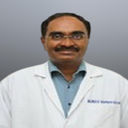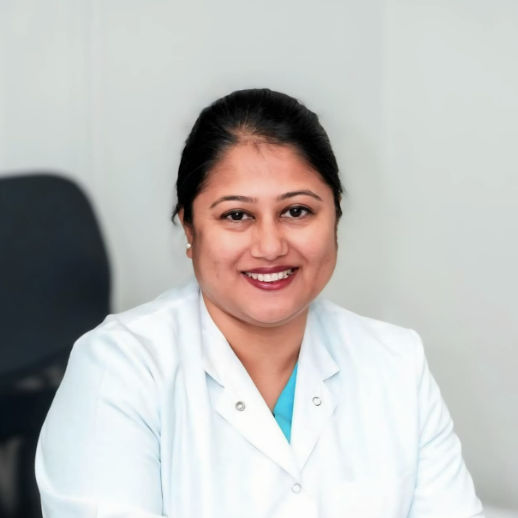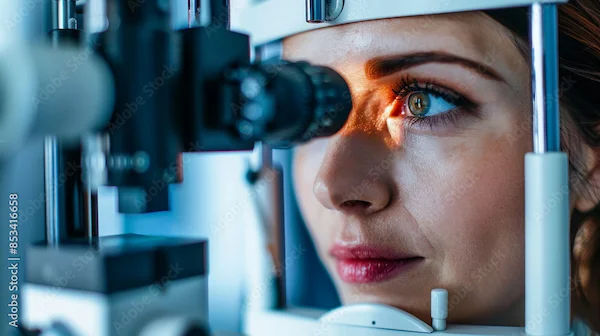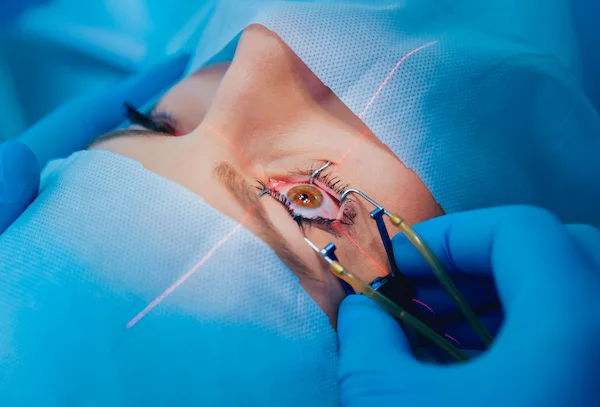Will I Need Glasses After Cataract Surgery With Toric Lenses?
Wondering if you'll need glasses after cataract surgery with toric lenses? Toric IOLs correct astigmatism for clear distance vision, significantly reducing reliance on glasses, but reading glasses may still be necessary. Learn what to expect.

Written by
Last updated on 13th Jan, 2026

Introduction
Cataract surgery is a common and highly successful procedure that helps restore clear vision by replacing the cloudy natural lens of the eye with an artificial intraocular lens (IOL). If you have astigmatism—a condition where the cornea is irregularly shaped, causing blurred vision—your doctor may recommend toric lenses during cataract surgery. But a common question many patients have is: Will I still need glasses after cataract surgery with toric lenses?
Let’s break this down in simple terms to help you understand what to expect.
Understanding Cataract Surgery with Toric Lenses
What Are Toric Lenses?
Toric lenses are a special type of intraocular lens (IOL) designed to correct astigmatism. Unlike standard monofocal lenses, which only correct distance vision, toric lenses can reduce or eliminate astigmatism, potentially reducing your dependence on glasses after surgery.
How Do They Work?
Standard IOLs correct only spherical refractive errors (nearsightedness or farsightedness).
Toric IOLs have different powers in different meridians (like a football shape) to correct the uneven curvature of the cornea that causes astigmatism.
Will You Still Need Glasses After Surgery?
The answer depends on several factors:
1. Degree of Astigmatism Correction
If your astigmatism is fully corrected by the toric lens, you may not need glasses for distance vision.
However, toric lenses are usually monofocal, meaning they correct vision at one distance (usually far). You may still need reading glasses for near tasks.
2. Other Vision Problems
If you have presbyopia (agerelated difficulty in reading small print), toric lenses alone won’t fix this. You might still need reading glasses.
Some patients opt for premium lenses (like multifocal or extended depthofocus IOLs) to reduce dependence on glasses, but these may not be suitable for everyone.
3. Surgical Precision & Healing
The exact alignment of the toric lens is crucial. Even a slight misalignment can reduce effectiveness.
Your eye’s healing response can also affect the final outcome.
4. Personal Expectations & Lifestyle
Some people are happy wearing glasses occasionally, while others prefer complete independence from them. Discuss your expectations with your surgeon.
Tips to Maximize Your Vision After Surgery
Tips to maximize your vision after surgery are:
1. Follow Post-Op Instructions – Use prescribed eye drops and avoid rubbing your eyes.
2. Attend FollowUp Visits – Ensures proper healing and lens alignment.
3. Consider Lifestyle Adjustments – If you don’t mind wearing reading glasses, toric lenses may be sufficient.
4. Discuss Advanced Options – If you want to minimize glasses use, ask about multifocal toric or EDOF lenses.
Consult Top Specialists for Personalised Health Advice
When to Consult Your Doctor?
If you experience:
Persistent blurry vision
Double vision
Severe glare or halos
Pain or discomfort
…schedule a followup with your eye specialist immediately.
Final Thoughts
While toric lenses significantly reduce dependence on glasses for distance vision in people with astigmatism, you may still need reading glasses. The best way to know what to expect is to discuss your options with an experienced ophthalmologist.
Need Help?
If you’re considering cataract surgery or have questions about toric lenses, Apollo 24|7 can help! Book a consultation with an eye specialist today for personalized advice.
Remember, every patient’s vision needs are unique—your doctor will guide you toward the best choice for clear, comfortable vision after cataract surgery!
Consult Top Eye Specialists
Consult Top Specialists for Personalised Health Advice
Dr. Padmini S
Ophthalmologist
4 Years • MBBS,MS
Bengaluru
Apollo Medical Center, Marathahalli, Bengaluru

Dr. Karan Paswan
Ophthalmologist
7 Years • MBBS,MS (Ophthalmology)
Kolkata
VDC Clinic, Kolkata

Dr. K Sreekumar Reddy
Ophthalmologist
26 Years • MBBS MD (Ophthalmology) EGESTOLP
Hyderabad
Apollo Hospitals Jubilee Hills, Hyderabad
(50+ Patients)

Dr. Zennat Tajmin Shah
Ophthalmologist
24 Years • MBBS,DNB (Ophthalmology)
Kolkata
Titanium Eye Care, Kolkata
Dr Kanse Vaibhav
Ophthalmologist
10 Years • MBBS, DO, MS, DNB
Pune
Apollo Clinic, Nigdi, Pune
Consult Top Eye Specialists
Dr. Padmini S
Ophthalmologist
4 Years • MBBS,MS
Bengaluru
Apollo Medical Center, Marathahalli, Bengaluru

Dr. Karan Paswan
Ophthalmologist
7 Years • MBBS,MS (Ophthalmology)
Kolkata
VDC Clinic, Kolkata

Dr. K Sreekumar Reddy
Ophthalmologist
26 Years • MBBS MD (Ophthalmology) EGESTOLP
Hyderabad
Apollo Hospitals Jubilee Hills, Hyderabad
(50+ Patients)

Dr. Zennat Tajmin Shah
Ophthalmologist
24 Years • MBBS,DNB (Ophthalmology)
Kolkata
Titanium Eye Care, Kolkata
Dr Kanse Vaibhav
Ophthalmologist
10 Years • MBBS, DO, MS, DNB
Pune
Apollo Clinic, Nigdi, Pune




